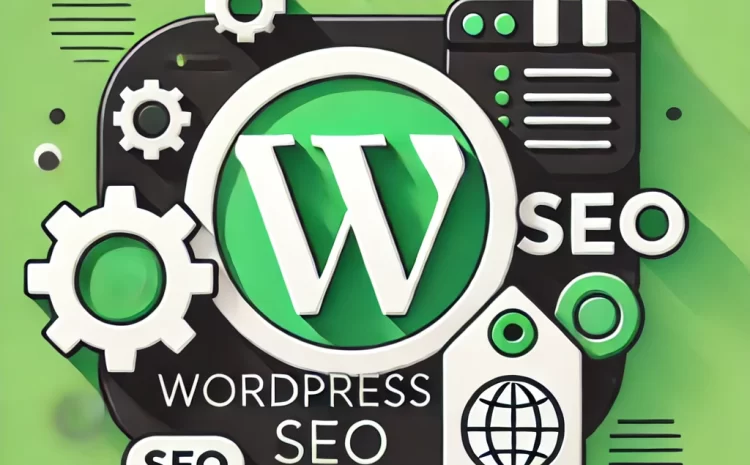How to Optimize WordPress Website for SEO: A Full Newbie Guide
Optimize your WordPress website for search engine optimization, or SEO, and you greatly increase the chances that your website will become visible to many people. The following beginner’s guide will walk you through the major steps that will enhance your WordPress site for its SEO to make life easy for the search engines and the users to find you.
How SEO Works for WordPress Beginners
SEO stands for the method of making your website friendly to appear high in the search results. This may sound daunting to some beginning WordPress users, but there are a few quick things you can do to greatly enhance the search ranking of your site.
1. Choose the Right Web Host
Your hosting provider will be the key to your site’s performance. The right hosting can increase your website speed and uptime, two of the most important factors which play a vital role in SEO. Find hosting providers that offer the following guarantees:
High uptimes
Page loading time
Good customer support
2. Use Search Engine Optimization-Friendly Theme
Of course, the most important thing you can do is select an SEO-friendly WordPress theme. When choosing themes, consider the following:
Responsive: Make sure your website performs well on all devices.
Fasts: Themes with clean code load faster.
SEO plugin-compatible: There are themes boasting of delivering the perfect compatibility with some of the most commonly used SEO plugins.
3. Setup an SEO Plugin
One of the most effective WordPress SEO tips for beginners is setting up an SEO plugin. Plugins like Yoast SEO or Rank Math will help you optimize your content effectively and provide you with respective features of:
Meta title and description customization
XML sitemap generation
Content analysis for keyword optimization
4. Optimize Your Permalinks
WordPress gives you a couple of options to alter the structure of your permalinks. So, to make your URLs more SEO-friendly, head over to Settings > Permalinks, and click to select an available structure that includes keywords. The best option taking into account better readability along with SEO is the option saying “Post name”.
5. Keyword Research
The keywords of your desired target audience provide an idea of what to use to optimize your content. Try Google Keyword Planner, Ubersuggest, or SEMrush. Go for the long-tail phrases-that is, lower in competition but way higher in intent.
6. Quality Content
Quality content is king in the world of SEO. Without content, you can not rank your website keywords and you have to write plagiarism free and Engaging content for your users. Write your content according to your audience, What they want and what type of information they are looking for. Here are some tips:
Write original, informative articles: Provide value to your readers and answer their questions.
Headings: Organize your content in sections to make it readable. A good SEO Key also exists in headers.
Keywords naturally: Do not stuff keywords, just write naturally and make your content SEO friendly to rank higher on search engines.
7. Optimize Images
The image adds to your piece of content, but when unoptimized, it has the potential to slow your site down. Images can be optimized in the following ways:
Descriptive file names: The name of your image files- rename them to include keywords.
Add alt text to your images, and this will further help search engines understand what they contain.
Compress them: You can use tools like TinyPNG or plugins like Smush to compress the file sizes without losing quality.
8. Improve Site Speed
Site speed is a major ranking factor. Following are a few ways to increase the speed of a WordPress site:
Employ a caching plugin: Examples include W3 Total Cache and WP Super Cache. These will kick your speed.
Optimize your database: If your database has too much digital clutter, perform regular cleanups using plugins like WP-Optimize.
Minimize HTTP requests: The more elements a page contains, the slower it will load.
9. Build Internal and External Links
Many important steps regarding SEO are with link building. Where internal linking is concerned:
Link to your content: this helps the search engines understand the structure of your site, and keeps visitors longer.
Link to authoritative sources: this may give credibility to your content and possibly even boost your rankings.
10. Monitor Your SEO Performance
Last but not least, you have to monitor your SEO performance. This is where Google Analytics and Google Search Console come into relevance for tracking the flow of traffic, user behavior, and the performance of search results. Go through your analytics regularly; look for opportunities to improve.
Conclusion
You don’t have to be intimidated by optimization. Thanks to these easy WordPress SEO tips, anyone can allow their website to gain better visibility and start attracting more visitors. Just remember one thing: SEO is a relentless process. Learn, adapt, and master continuously. Happy Optimizing!



Write a Comment